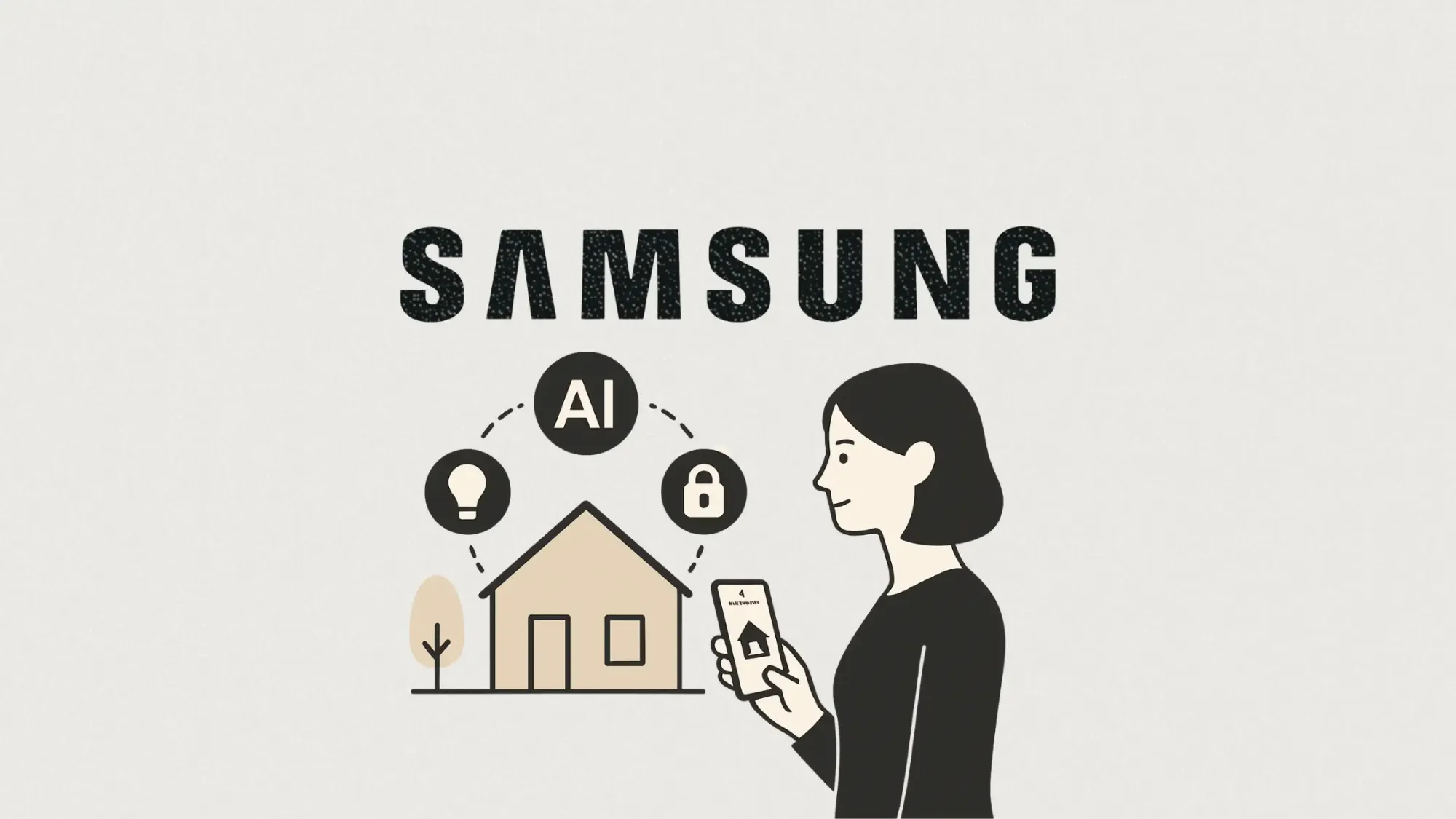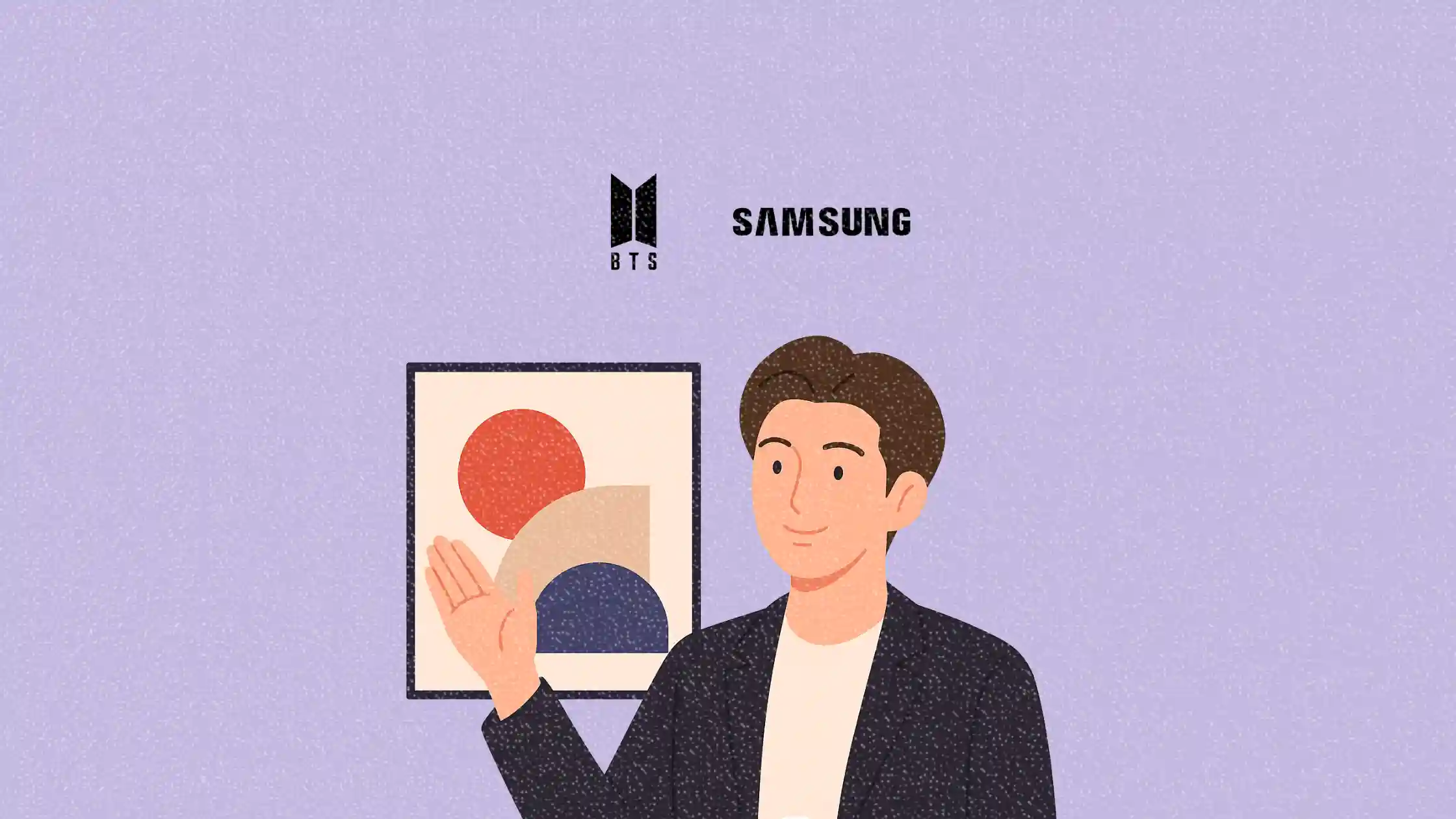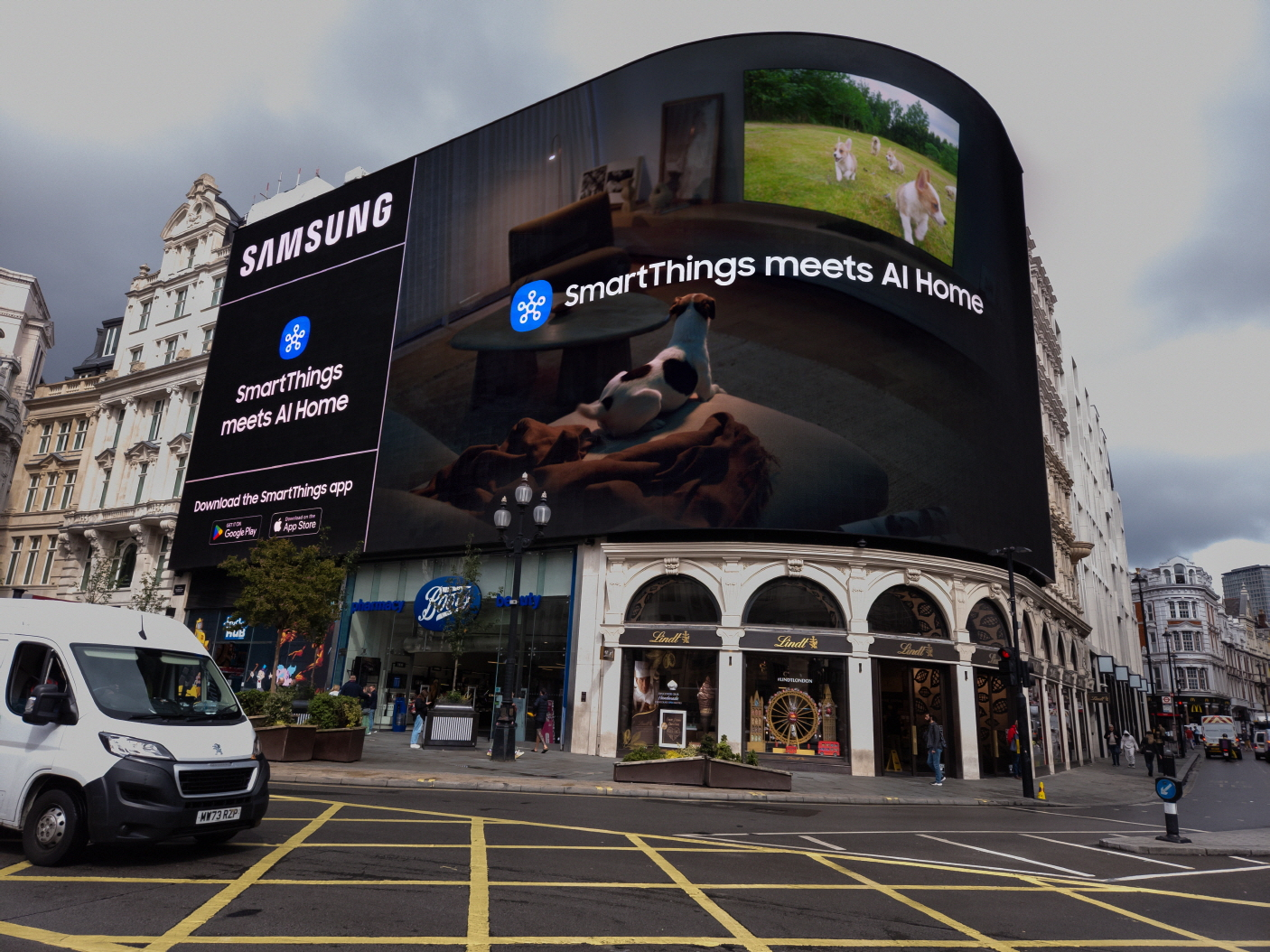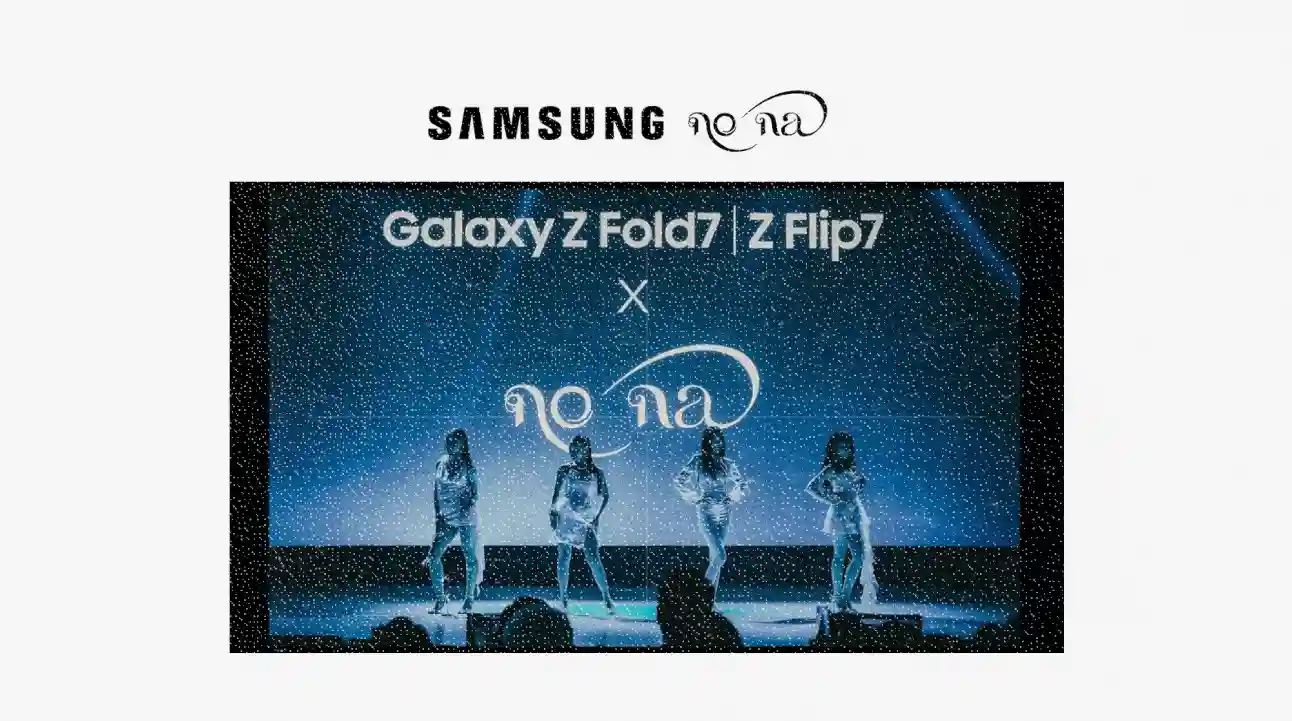Samsung launches global AI Home campaign focused on autonomy and quality time
Samsung bets on convenience and emotional connection to sell its AI Home concept worldwide

Samsung is making its AI ambitions feel personal and global. With its latest campaign, the tech giant isn't just selling a connected home. It’s selling the promise of more freedom and better moments with family.
The new campaign, SmartThings meets AI Home, departs from generic smart home pitches that emphasize control and convenience. Instead, it leans into storytelling to show how Samsung’s AI Home simplifies daily life by making routines invisible. By automating household tasks like turning off lights or starting the washing machine, Samsung’s message is clear: do less, live more.
This article explores the campaign’s creative direction, its global rollout strategy, and the implications for marketers building brand narratives in an AI-saturated world.
Short on time?
Here is a table of content for quick access:
- Samsung reframes the smart home pitch with AI
- A 360-degree campaign with global reach
- What marketers should know

Samsung reframes the smart home pitch with AI
Developed with agency Cheil, the campaign centers on a flagship film told from the unexpected perspective of an AI device observing the lives it quietly improves. The narrative frames AI not as a flashy assistant but as a silent enabler of more meaningful family time.
Unlike typical smart home setups where users must actively manage settings and triggers, Samsung’s AI Home claims to deliver ambient intelligence. That means SmartThings powers an ecosystem that anticipates and adapts to the user’s lifestyle without constant intervention.
The company emphasizes that AI Home is designed to reduce the number of decisions users must make, allowing technology to recede into the background while enhancing comfort and efficiency.

A 360-degree campaign with global reach
The one-year campaign is fully integrated across digital, out-of-home (OOH), and Samsung-owned media. It includes everything from digital films and hero visuals to high-impact placements on landmark screens like London’s Piccadilly Circus and New York’s Times Square.

According to a Samsung spokesperson speaking to MARKETING-INTERACTIVE, the campaign aims to raise awareness by showing how AI Home reduces everyday friction. This isn’t about novelty. It’s about normalizing AI-driven autonomy in daily life.
By using relatable domestic moments and a warm, almost invisible AI presence, Samsung is trying to shift the conversation from “smart” to seamless.

What marketers should know
Samsung’s global AI Home campaign offers more than a showcase of tech innovation. It’s also a case study in how to frame emerging technologies in ways that feel human, relevant, and strategically sharp. Here are four key takeaways for marketers looking to tell better stories around smart tech and automation:
1. The future of tech branding is emotional, not technical
Samsung’s move is a playbook shift. From specs and features to emotional benefit. This campaign isn’t talking about sensors or interfaces. It’s talking about time reclaimed. For marketers, this signals a need to connect tech utility to personal impact.
2. Visual storytelling still matters in an AI age
The central film is a reminder that beautifully told stories still cut through, even in a data-driven world. Brands exploring AI, IoT, or other complex innovations should consider how narrative and emotional framing can make abstract tech feel real and relevant.
3. Frictionless UX isn’t just a feature. It’s a message
Samsung’s AI Home promises “do less” as a benefit. That’s a smart angle in a market oversaturated with “do more” messages. Marketers selling digital tools or platforms should think carefully about what removal of effort looks like in their value proposition.
4. Global campaigns need cultural flexibility
With executions running across global hubs, the campaign highlights the importance of designing creative that resonates across markets without relying on local clichés. The universal themes—family, time, ease—are safe yet effective anchors.
Samsung’s AI Home campaign shows how brand storytelling around smart tech is evolving. It's not about what devices can do, but about what people get back. More time, less stress, and meaningful moments.
For marketers, the lesson is clear. When selling innovation, speak to the outcome, not just the input. The brands that win with AI won’t necessarily be the ones with the most powerful tools, but the ones who make those tools disappear into everyday life.






